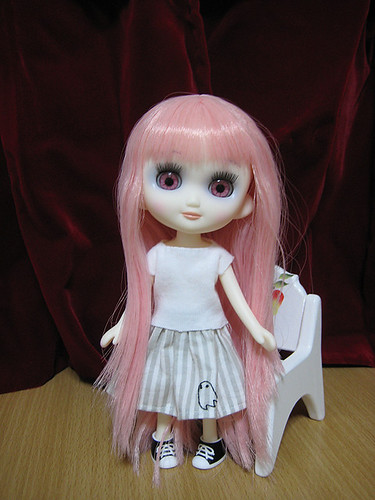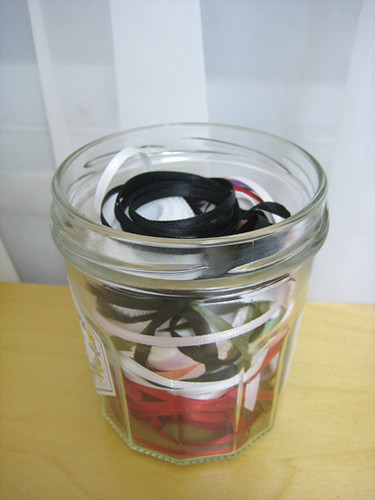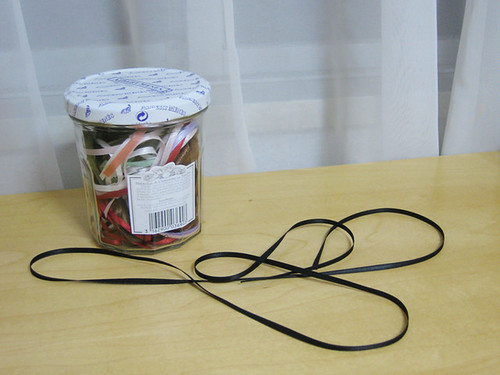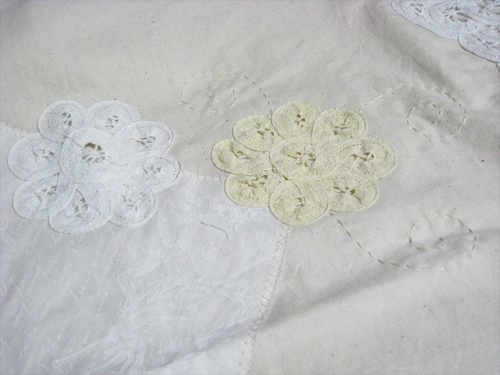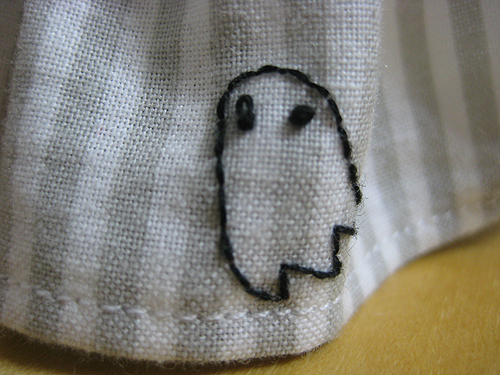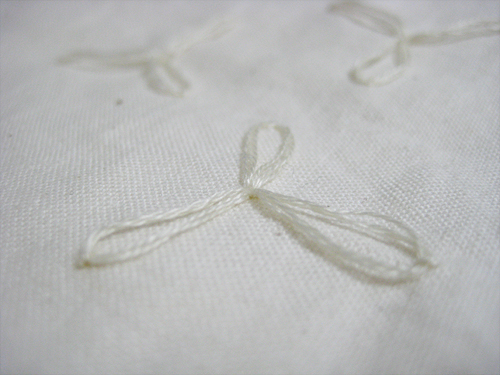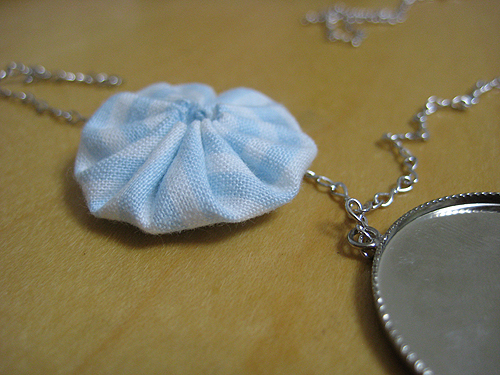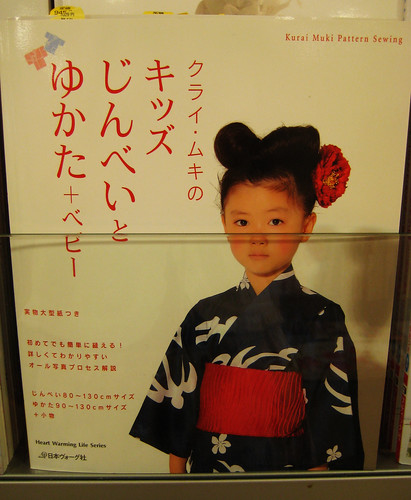As promised here are some other new releases. Two at a time today! I previously talked about the new book in the Pochee Special series, so here it is. And this time I even went crazy and took some pics, even though I didn’t get the books. But just a few, because I don’t think it really is allowed… ^_^;
Pochée Special “Linen & cotton de tsukuru, natural fuku to haorimono”
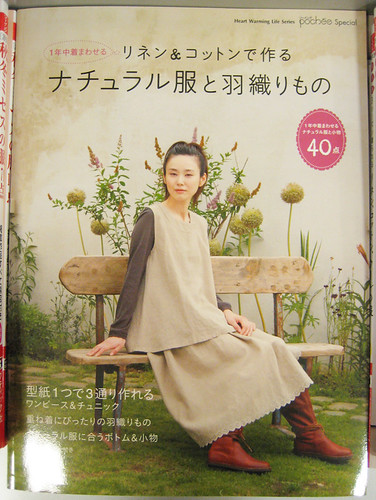
The last Pochee issue and this book are partly centered around the same theme of natural clothes and outer clothes. They say on the cover (if I got it right) that those clothes are okay for all year round. You get 40 items inside (clothes or accessories). Same principle as always: several designers, each of them offering one basic garment and two variations. Plus a few coordinating pieces (skirts, pants, stoles, bags…). Now let’s see some pictures and the table of content!

Peitamama’s style
- basic: stand collar coat onepiece (see pic)- arrange 1: front open onepiece with flat collar- arrange 2: 3/4 sleeves tunic onepiece- short pantsFor all designers there is a design of each piece (basic/variations) under the picture so you can have a better idea.
May Me’s style
- basic: shawl collar onepiece (short sleeves, opens in front)- arrange 1: stand collar coat onepiece (see picture — shows the back)- arrange 2: hooded jacket- reversible jacket (shown with the basic onepiece, looks quite large and thick).
anon ketto’s style
- basic: round neck onepiece (see picture)- arrange 1: tunic onepiece (shorter than the basic piece)- arrange 2: scallop no sleeves tunic (seen on the cover)- stole vest (see link just below or picture at the bottom of the post)Those tops by anon ketto have something special: the back is open and asymmetrical. The right part goes on top of the left part and seems to be attached at the top. You can see it on this picture (or at the bottom of this post).
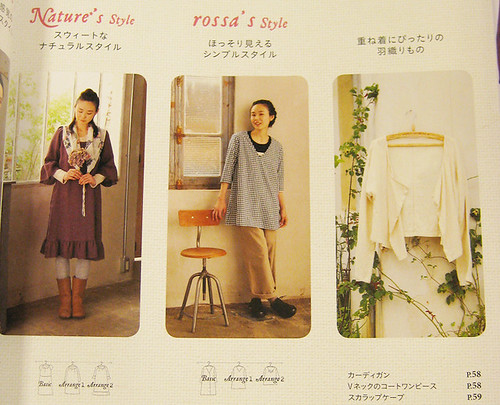
Nature*’s style
- basic: U-neck onepiece- arrange 1: long sleeves onepiece- arrange 2: frill onepiece (see picture)- scallop capeAll three dresses seem to have a gathered neckline judging from the designs.
rossa’s style
- basic: V-neck coat onepiece- arrange 1: V-neck tunic onepiece (see pic)- arrange 2: V-neck blouse (see picture, the small white part belongs to it)Both variations are shown on the same pages. They have the same shape, the blouse being smaller and having this white part at the neck. See designs bellow the picture.
Accessories
The last picture on the right show one of the coordinating pieces: a cardigan. Some other accessories are: the bag on the anon ketto’s style picture, the scarf on the Nature’s style pic and a petticoat/skirt made in the same fabric. I don’t remember what the other items are, sorry.

The basic garments by Peitamama, May Me and Nature and the cardigan have their own “sewing lesson”. That means there are very detailed explanations on how to make them, with step by step pictures. The other clothes listed under the designers names above have color explanations with drawings among the pictures. Some are very detailed, some only show the cutting layout and steps order. The other garments/accessories are described in black and white at the end of the book with the same kind of drawings.











